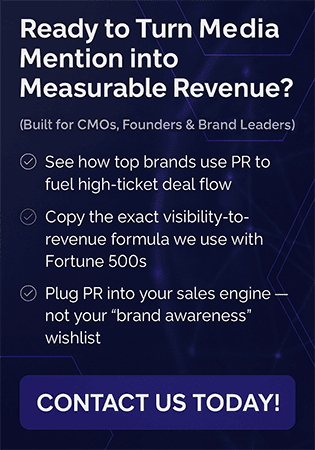In the last few years, we at Zen have noticed a new phenomenon in the marketing world – the emergence of the anti-agency. We coined the term to encapsulate the evolving needs of businesses and the unorthodox, yet effective, new approach to meeting those needs that we were seeing more and more of, and recognized as being the wave of the future.
Thanks to phenomena like content shock, advertising overload, and digital saturation,the digital landscape has become a vastly different place from what it was a few years ago. Brands are learning that simply being louder, or more persistent, than their competitors no longer works.
As Digiday reported recently, we’re seeing more and more brands – even huge, multinational ones like Proctor & Gamble and Unilever, the type of companies that used to be reliable agency clients – take their marketing in-house. They’re starting to back away from the full-service, ongoing offerings, and focusing more on specific inflection points where they need focused, strategic insight.
In essence, these brands are following the same trends we’re seeing in the consumer world: They’re seeking greater personalization. More specialized, niche offerings. On-demand, à la carte services.
So if you’re an in-house marketing executive, how does this shift toward more strategic marketing partnerships affect you? How can you begin applying this mindset to your own department?
Here’s a look at what the anti-agency movement means for you.
Now is the time to reevaluate where your marketing dollars are going and the ROI they’re bringing in.
How are you spending your marketing dollars? If a large chunk of them are going toward a full-service agency, it might be time to reconsider how you’re spending those funds and the return on investment (ROI) you’re seeing from them.
In some cases, outsourcing the full spectrum of your digital marketing makes sense – if you’re working with a particularly lean staff, for example, or your have major ongoing campaigns that are taking up your in-house team’s time. Outside agencies can be particularly helpful when it comes to high-stakes, highly ambitious campaigns – let’s not forget that Pepsi’s infamous Kendall Jenner “short film” ad was created by their in-house marketing team.
However, it’s worth it to take a good, hard look at what your marketing department’s goals are, and how your agency partnership is helping you meet those goals. If all is going well, then great – you know for sure that you’re making the right choice.
But if there are areas in which your agency partner is lacking, you may want to consider bringing back some of those operations in-house, and utilizing your agency as more of a project partner.
The anti-agency paradigm is one of increased specialization and robust value. Instead of employing your agency partners to increase your volume, ask them to sharpen your presence with the audience who matters.
That could mean employing them to do a deep dive into audience demographics for an upcoming experiential marketing campaign. That could mean asking them to develop a site-specific, interactive campaign for your next conference.
How can your in-house department become its own “anti-agency”?
In the same way that you can start honing in on which elements of your agency partnership are working and which aren’t, you can also examine your own department to see which campaigns and strategies are creating value, and which are holdovers that no longer serve your purpose.
Continue and grow what’s working. Drop what no longer serves you.
Here’s a simple example of an ongoing strategy that can be easily overlooked, yet could be costing you significant resources.
Let’s say you have social media profiles on 5 platforms – Facebook, Twitter, Instagram, Pinterest, LinkedIn, and Snapchat.
Of those, three generate 90% of your leads: Facebook, LinkedIn, and Instagram. These are the platforms you generally think about when you think of your company’s social media presence.
However, even though the other two platforms aren’t really on your radar, one of your team members regularly spends time updating Snapchat and Twitter, just to keep them active.
This is a situation when looking closely at what’s being done, what it takes to do it, and how much ROI it’s generating can be highly beneficial. Analyze your data to figure out exactly what those platforms are doing for you. If the data says they’re taking more time than they’re worth, maybe it’s time to put that effort somewhere else.
Own your data.
One of the reasons so many brands are beginning to take their marketing in-house is the abundance of data they now have access to.
In years past, agencies were the ones that controlled much of a company’s marketing data – and even if they didn’t control the data itself, they controlled the analysis and study that made the data useful.
Thanks to tools like Google Analytics, Hootsuite, Hubspot, and others, companies no longer need an outside partner to parse their data for insights (some, of course, do still want to outsource their data management and analysis. But fewer do today than did in the past.).
Your marketing department likely has an abundance of data that comes in regularly, whether you actively collect it or not. One of the most effective ways you can apply the anti-agency mindset to your department is by integrating that data into every decision you make.
Don’t just assume things about your customers – back up your assertions with information.
Don’t make guesses about whether a campaign will work or not – perform micro-tests on different audiences, gather the data, and continue from there.
This way, you’ll be able to determine exactly where and how you’re creating value for your customers.
Embracing the anti-agency mindset means taking a scalpel, not a hammer, to the way you’ve always done things. It means diving into new ways of doing things, like experiential marketing. It means owning your data and putting it to work.
If you want the premier anti-agency on your side to complement your efforts, get in touch with us today.





